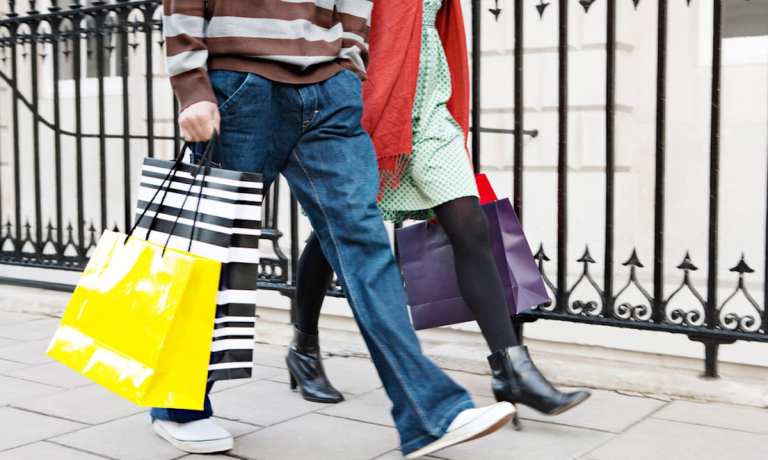UK Card Spending Continues Recovery

Spending via debit and credit card use in the United Kingdom has reached 88 percent of its pre-pandemic level — its highest level since Christmas, the government’s central statistics office reported.
“This increase was partly driven by the usual increase in staples (essential goods such as food and utilities) seen around the turn of the month, as well as a continued increase since early 2021 in the value of CHAPS payments received by large U.K. corporates from their credit and debit card processors (Bank of England’s CHAPS data),” an accompanying analysis from the Office for National Statistics stated.
Aggregate spending on debit and credit cards was 88 percent of comparable data for February 2020 before the pandemic struck. The lowest recently recorded figure was reported in May of this year, at 63 percent of February 2020 spending.
The U.K. government’s statistical report also showed an increase in the percentage of businesses that are “currently trading,” reaching 75 percent in late March from 71 percent in early January. That figure has fluctuated since the onset of the Covid-19 pandemic.
A measure of foot traffic at retail locations put it at 51 percent of the figure for the comparable pre-pandemic week. Foot traffic at “retail parks” was 85 percent of the comparable pre-pandemic figure.
The number of job advertisements active on April 1, 2021, was 97 percent of the comparable pre-pandemic figure. Meanwhile, large-truck traffic around ports was slightly above the pre-pandemic, comparable-week level.
The percentage of the country’s workforce on furlough held steady compared to recent weeks, at slightly more than half the comparable pre-pandemic figure.
Separately, the Financial Times on Thursday (April 8) quoted data from IHS Markit/Cips UK indicating that construction spending in the United Kingdom is on the rise. “U.K. construction activity expanded at the fastest pace in more than six years in March, while other business measures recorded improvements, fueling hopes of a milder economic contraction in the first quarter of this year than during the first lockdown,” the report stated.